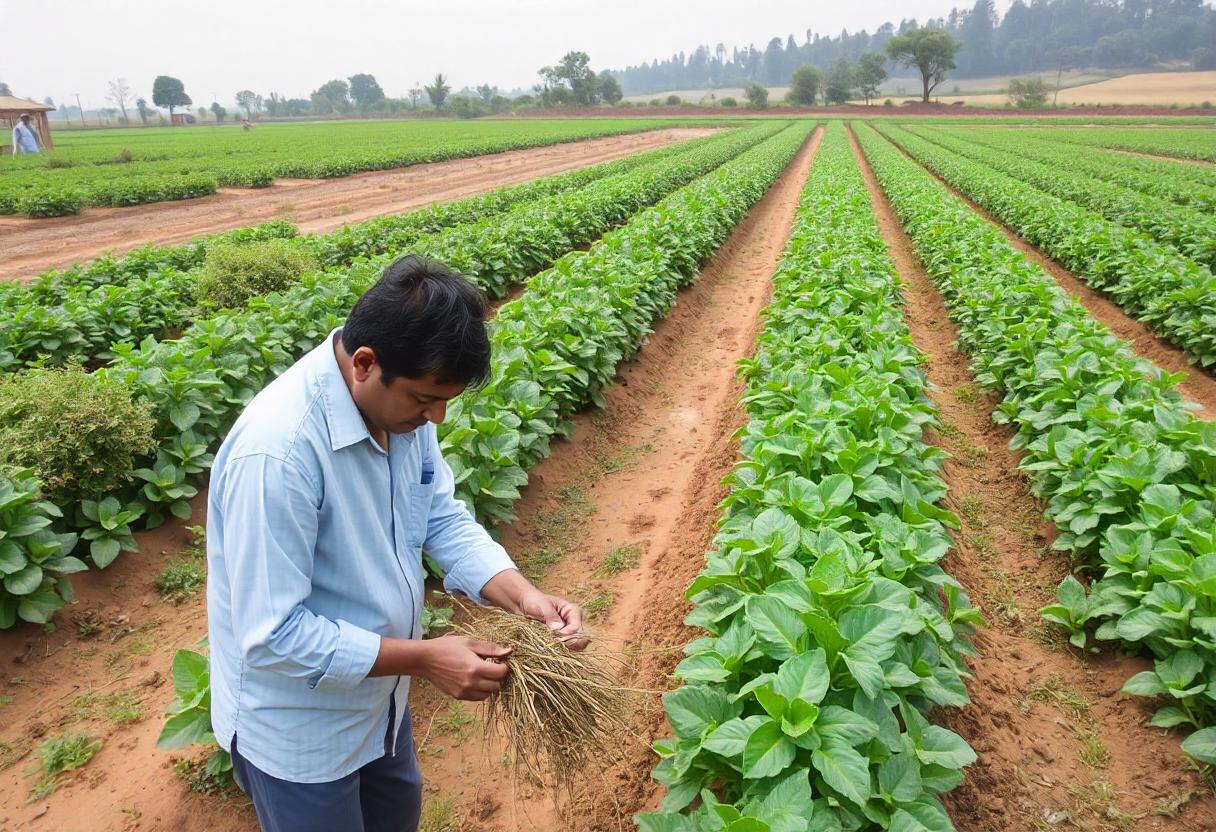
Agriculture farming is a cornerstone of human civilization, crucial for producing the food, fiber, and other essential products that sustain life. This sector involves a diverse range of activities and methodologies, each contributing to the overall goal of efficient and sustainable food production. As farming practices evolve, they address both the needs of a growing global population and the challenges posed by environmental changes.
Key Components of Agriculture Farming
Crop Farming
Crop farming is the practice of growing plants for various purposes, including food, animal feed, and industrial uses. This sector encompasses several types of crops, each requiring specific cultivation techniques and conditions.
- Cereal Grains: Major crops like wheat, rice, corn, and barley are staples in diets worldwide. These grains serve as fundamental food sources and are also used in animal feed.
- Fruits and Vegetables: This category includes a wide range of crops such as apples, tomatoes, and carrots. These are grown for direct consumption and play a key role in human nutrition.
- Legumes and Oilseeds: Crops like beans, peas, soybeans, and canola are important for their protein content and oil production. They are integral to both human diets and various industrial applications.
Livestock Farming
Livestock farming involves raising animals for products like meat, milk, wool, and leather. This practice supports a significant portion of the agricultural sector and includes several types of livestock farming:
- Beef Cattle: Raised primarily for meat production, beef cattle are managed for optimal growth and meat quality.
- Dairy Cattle: These cattle are bred and managed for milk production, which is processed into various dairy products such as cheese and yogurt.
- Poultry: Chickens, turkeys, and ducks are farmed for their meat and eggs. Poultry farming is a major component of global food production.
- Sheep and Goats: Raised for meat, milk, and fiber, sheep and goats are versatile animals used in various agricultural systems.
Mixed Farming
Mixed farming integrates both crop cultivation and livestock raising on the same farm. This approach allows for diversified production, which can enhance farm resilience and sustainability. Benefits of mixed farming include improved soil fertility through manure application and better resource utilization.
Farming Methods
Conventional Farming
Conventional farming relies on traditional methods and technologies, including synthetic fertilizers, pesticides, and monoculture practices. While these methods aim to maximize yields and efficiency, they can also lead to environmental concerns such as soil degradation and pollution.
Organic Farming
Organic farming focuses on natural processes and ecological balance, avoiding synthetic chemicals and genetically modified organisms (GMOs). It emphasizes the use of organic fertilizers, crop rotation, and integrated pest management to enhance soil health and minimize environmental impact.
Sustainable Farming
Sustainable farming aims to balance productivity with environmental stewardship and social responsibility. Practices in this category include:
- Conservation Tillage: Techniques that reduce soil disturbance to prevent erosion and improve soil health.
- Agroforestry: The integration of trees and shrubs into farming systems to enhance biodiversity and soil quality.
- Water Management: Efficient irrigation techniques and water conservation practices to manage water resources sustainably.
Precision Farming
Precision farming utilizes advanced technology to optimize field-level management and crop production. Key technologies include:
- GPS Technology: Provides accurate field mapping and enables variable rate application of inputs.
- Drones and Sensors: Used for monitoring crop health, soil conditions, and pest activity.
- Data Analytics: Employs real-time data and predictive models to make informed decisions and improve farm management.
Challenges in Agriculture Farming
Agriculture farming faces several significant challenges that impact productivity, sustainability, and profitability:
- Climate Change: Variations in weather patterns and extreme events affect crop yields and livestock health, requiring adaptive strategies.
- Soil Degradation: Issues such as erosion, compaction, and loss of fertility can reduce agricultural productivity over time.
- Water Scarcity: Limited water resources pose challenges for irrigation and livestock watering, necessitating efficient management practices.
- Pest and Disease Management: Controlling pests and diseases while minimizing chemical use can be complex and costly for farmers.
Innovations and Future Directions
The future of agriculture farming is likely to be shaped by ongoing innovations and emerging trends:
- Biotechnology: Advances in genetic engineering and genomics could lead to crops with improved traits, such as enhanced resistance to pests and diseases.
- Automation: Robotics and automation technologies are expected to increase efficiency and reduce labor costs in farming operations.
- Vertical Farming: Growing crops in vertically stacked layers or controlled environments to maximize space and resource use, particularly in urban areas.
- Regenerative Agriculture: Focused on restoring soil health, increasing biodiversity, and improving carbon sequestration through practices that enhance the overall sustainability of farming systems.
Agriculture farming is a dynamic and evolving field that plays a crucial role in feeding the global population, supporting rural economies, and addressing environmental challenges. The continued advancement of farming practices and technologies will be essential in meeting the demands of a growing world while ensuring the long-term sustainability of agricultural systems.